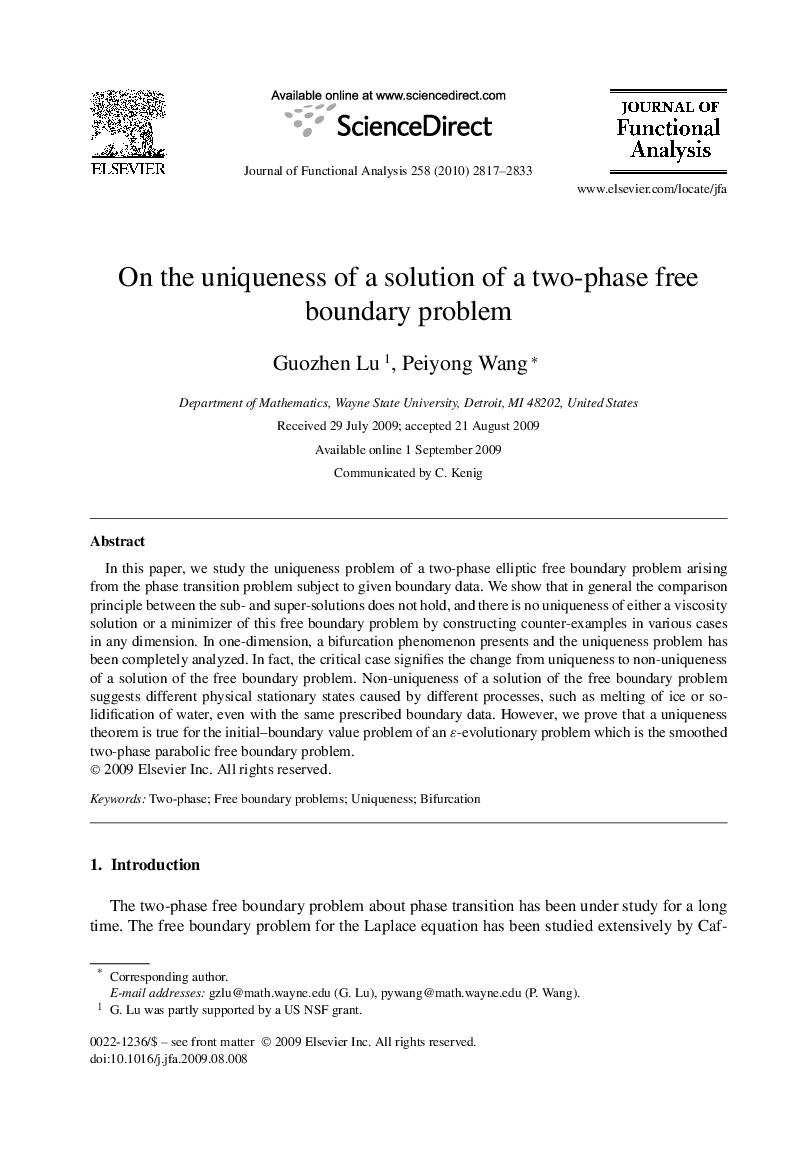| Article ID | Journal | Published Year | Pages | File Type |
|---|---|---|---|---|
| 4591245 | Journal of Functional Analysis | 2010 | 17 Pages |
In this paper, we study the uniqueness problem of a two-phase elliptic free boundary problem arising from the phase transition problem subject to given boundary data. We show that in general the comparison principle between the sub- and super-solutions does not hold, and there is no uniqueness of either a viscosity solution or a minimizer of this free boundary problem by constructing counter-examples in various cases in any dimension. In one-dimension, a bifurcation phenomenon presents and the uniqueness problem has been completely analyzed. In fact, the critical case signifies the change from uniqueness to non-uniqueness of a solution of the free boundary problem. Non-uniqueness of a solution of the free boundary problem suggests different physical stationary states caused by different processes, such as melting of ice or solidification of water, even with the same prescribed boundary data. However, we prove that a uniqueness theorem is true for the initial–boundary value problem of an ε-evolutionary problem which is the smoothed two-phase parabolic free boundary problem.
